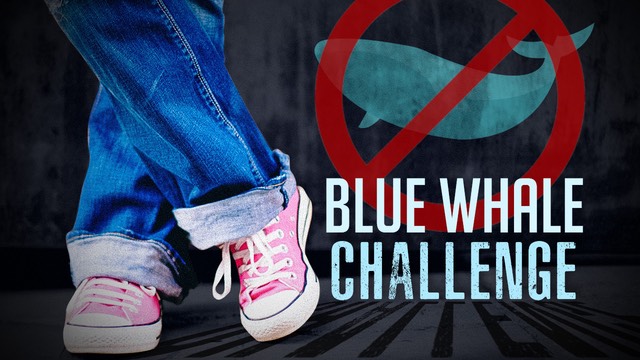The stories surrounding the infamous Blue Whale application has shocked most of us.
It got even worse with the creator of the app chillingly stating that he was cleansing the world of such people who he referred to as “biological waste”. The term “biological waste” has been directed to teenagers who feel that they are worthless and their existence makes little or no difference to anyone. The app has claimed 130 lives, however the creator states that only 17 lives were directly influenced by the game.
One reason as to why this has been shocking is that most people find it difficult to understand the way in which the application has been successful in convincing teenagers to follow through all the levels of torture. And finally make them able to proceed through the last level which is – suicide.
‘Young minds are impressionable minds’, and they need to be dealt with in a way that is neither too optimistic nor depressing when talking about the way situations work out in life.
Most children are told that death means a direct ticket to heaven, which also involves joining the stars and shining in the night sky. This romantic notion that death is beautiful impacts the way in which children deal with their issues. Since they are so young and innocent, most parents think that talking in a straightforward way could shock the child.
Talk to your teenagers about death
When talking with children about death, if you observe that the child is starting to understand things around them, please explain that death is a natural life event. Instead of waiting for it to occur, or causing it to oneself, they could rather spend their lifetime in dealing with the positive and negative events that they will experience.
However, when children are fed with the idea that death is beautiful, they think of it as an escape. A way to freedom that will ultimately give them eternal happiness. As these children grow into teenagers, they may perceive problems to be too depressing to be dealt with. These negative life events may feel like it were consuming the better part of them and would not be looked at as another stepping stone to the goal.
What parents should do
Children need to be given as much a realistic picture of death as possible. They should in no way be made to think of death as a way out of problems. Rather, they need to be explained the benefits of working through negative situations themselves. However, parents who are over-protective of their children and want to keep them as sheltered as possible weaken the child’s defenses. It can also aid in convincing them that running away from problems is the best solution.
Another way is that parents need to be involved with their child so that they are comfortable in communicating with them. Open communication between the parents strengthens the bond between the parents and the child. It also aids in improving the way the child communicates with the people he meets with outside of his home.
The biggest source of concern however seems to be the effect that technology has on children. Since it has become the source of instant gratification, it is expected that the events that happen in their lives need to show immediate results as well. When that is not the case, the behaviour displayed are that of irritation, panicking, and elevated mood swings. All of this combined makes the child more hostile. Controlled technology usage may help in decreasing the child’s dependency. So they could be given the phone/tab only after homework has been completed. Also, monitoring of their virtual movements may help the parents in keeping in track of what information the child gets exposed to.
Death isn’t avoidable, however suicide can be. Dealing with the topic may be overwhelming to many but it’d rather be discussed realistically than feed on the child’s idealism.

